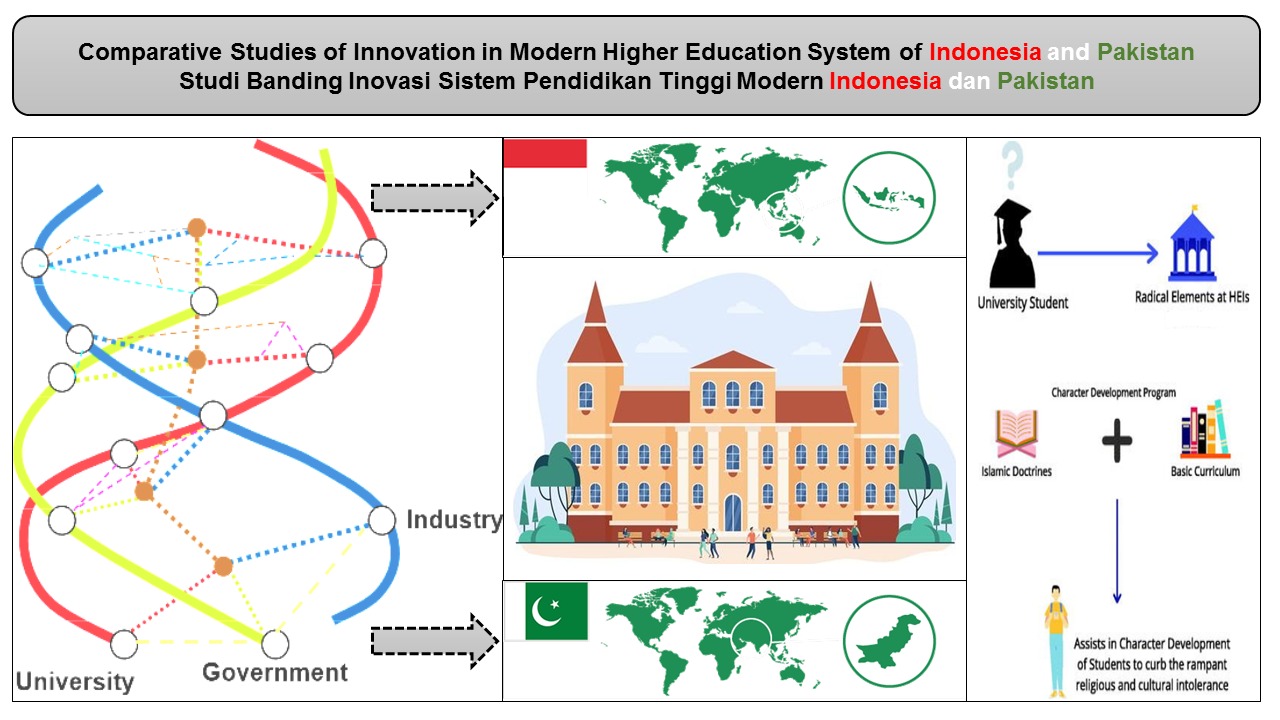COMPARATIVE STUDIES OF INNOVATION IN MODERN HIGHER EDUCATION SYSTEM OF INDONESIA AND PAKISTAN
Keywords:
Modern Education System, Higher Education, Innovation, Indonesia, PakistanAbstract
This research delves into the evolving landscape of global higher education, presenting a comparative case study of innovative reforms in the higher education systems of Indonesia and Pakistan. Employing a qualitative approach, the study engages fifteen scholars from both countries studying in Indonesia as informants. Data collection involves Google forms, interviews, and documentation, with qualitative descriptive analysis as the primary analytical method. The results provide a comprehensive analysis of the innovative strategies within the higher education systems of both nations, addressing challenges posed by global shifts. Indonesia emphasizes internationalization through flexible programs, quality assurance via LAA and BANPT, foreign faculty recruitment, and extensive media publicity, illustrated by Gadjah Mada University and the University of Indonesia. In contrast, Pakistan, guided by the Higher Education Commission (HEC), aligns its institutions with international standards, as evidenced by their presence in the QS World Ranking 2023 of National University of Science and Technology (NUST) and Quaid-e-Azam University (QAU). The study emphasizes the necessity for modernization and internationalization in both countries, advocating for collaborative efforts among institutions, industry, and government to foster sustained progress. The research concludes with a call for innovative policies to be accompanied by robust monitoring, follow-up, and evaluation systems by government bodies such as MOEC and HEC, providing crucial guidance to policymakers and contributing meaningfully to academic discourse.

